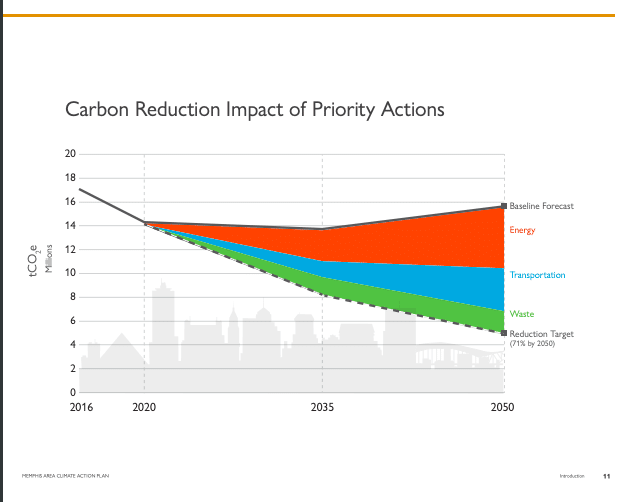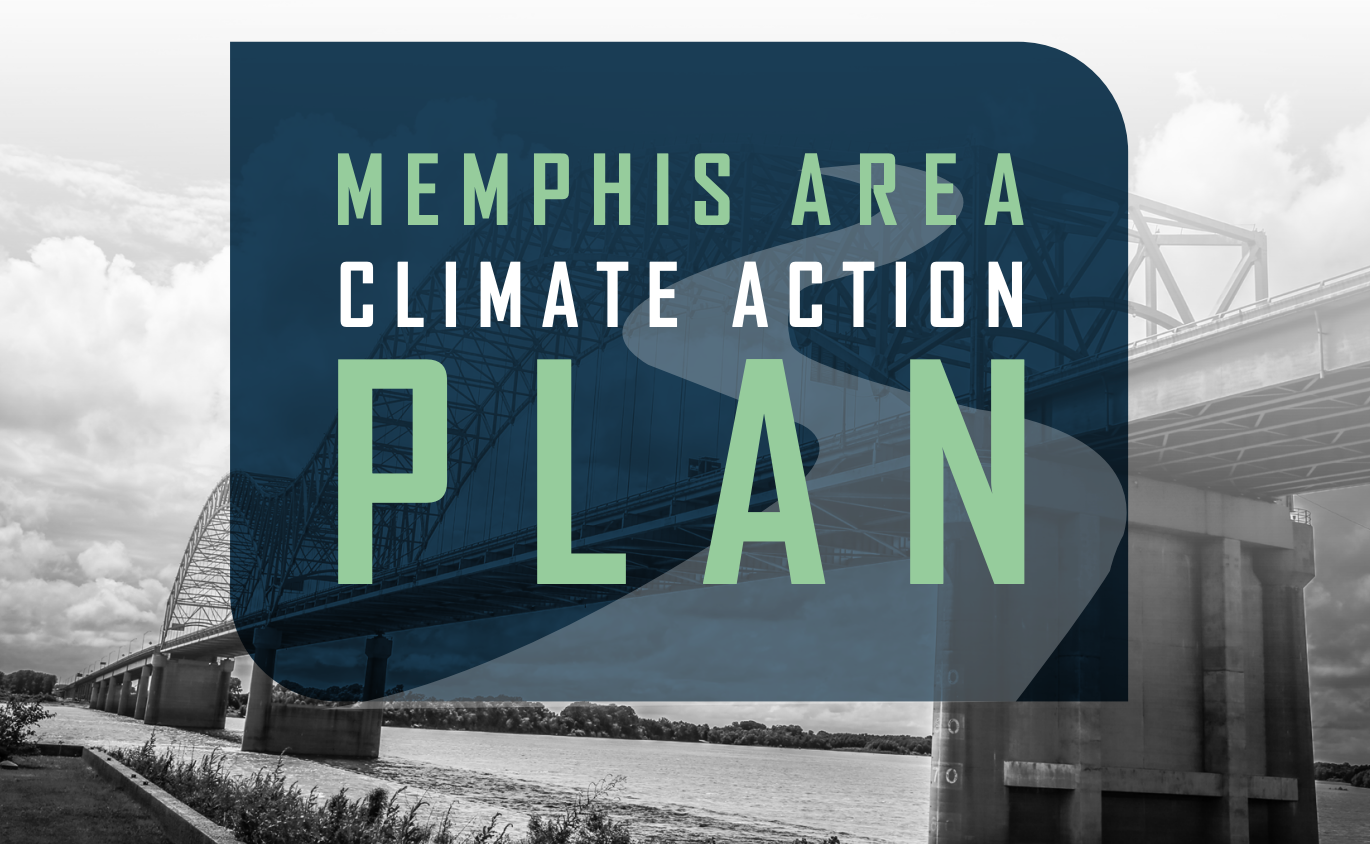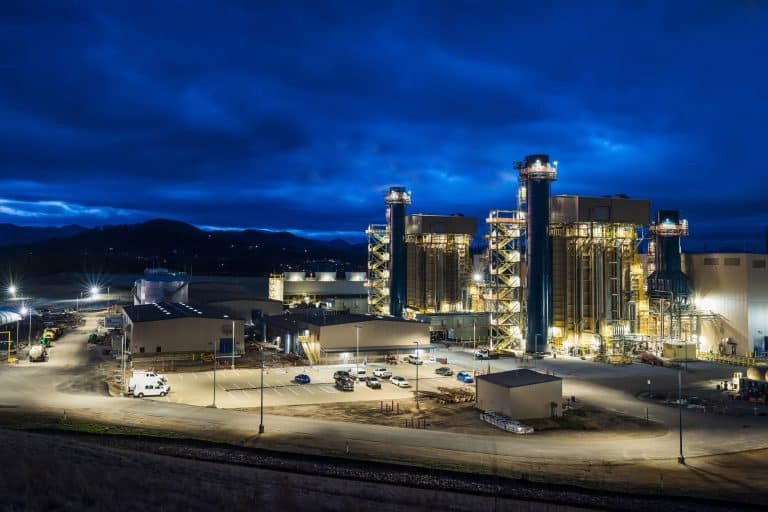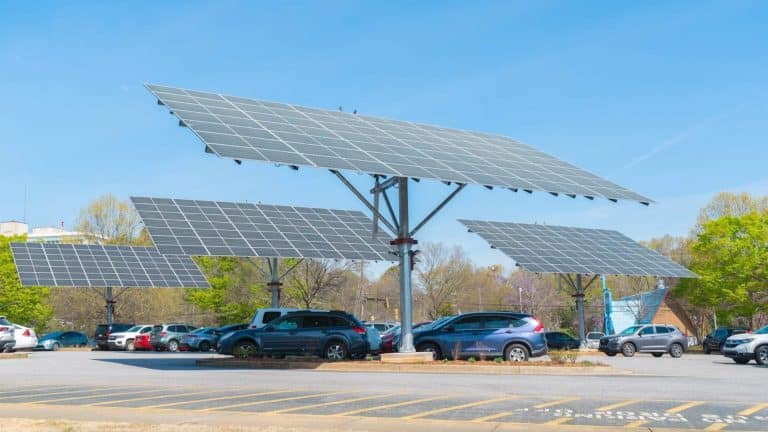This blog post was written by Brady Watson, former Civic Engagement Coordinator for the Southern Alliance for Clean Energy.
At their April 20 meeting, the Memphis City Council approved amendments to the Memphis 3.0 Comprehensive Plan, which includes the Memphis Area Climate Action Plan. The plan, released in January of 2020, is a joint venture between the City of Memphis and Shelby County. With support from City of Memphis Mayor Jim Strickland and Shelby County Mayor Lee Harris, the plan sets concrete carbon pollution reduction goals and lays out action steps based on input from community stakeholders.
With the benchmark of a 2016 inventory of greenhouse gas emission levels, the plan calls for reducing community-wide greenhouse gas emissions 51% by 2035, and 71% by 2050. To meet these goals, the plan includes sections on energy, transportation, and waste, with energy making up the largest share of emissions. Additionally, the plan calls on Memphis and Shelby County governments to reduce the emissions from their government-owned assets even more than the goal set for the community at large. It calls for both entities to reduce emissions in their buildings sector 55% by 2035, and 80% by 2050, and to reduce emissions in fleet vehicles 45% by 2035, and 80% by 2050.
The energy section includes actions to increase energy efficiency and renewable energy, as well as retrofit outdoor streetlights to LEDs. Specifically, the plan calls to increase the percentage of carbon-free energy in the electric grid 80% by 2035, and 100% by 2050, with a focus on solar and wind.

The transportation section identifies an action to encourage the adoption of electric vehicles and the development of charging infrastructure. Goals include increasing passenger vehicle travel using electric vehicles (EVs) to 5% by 2025, 30% by 2035, and 50% by 2050. It also aims to increase freight vehicle travel by EVs to 3% by 2025, 20% by 2035, and 50% by 2050.
City of Memphis Mayor Jim Strickland said of the Memphis Area Climate Action Plan, “Climate change poses real threats to our community. Increased flooding, more frequent heat events and drought, and severe storms are all risks our city faces. Addressing climate change locally not only helps reduce these risks, but also presents exciting opportunities to positively impact everyone in our city. These actions will improve our air and water quality, lead to better health outcomes for our residents, and encourage the growth of new green businesses and jobs. Most important, these actions focus on creating a more equitable city. Climate change most impacts vulnerable populations, and it is necessary to prioritize programs and investments that will reduce disparities and increase opportunities for these communities.”
Shelby County Mayor Lee Harris said, “This plan provides detailed goals and objectives for reducing our carbon footprint and outlines key actions that will not only help us achieve these goals but will also lead to a healthier, more prosperous, and more equitable community.”
We applaud the members of the Memphis City Council, as well as Mayors Harris and Strickland for their work to develop and adopt this plan. We also look forward to working with City and County officials to help make these goals a reality.


